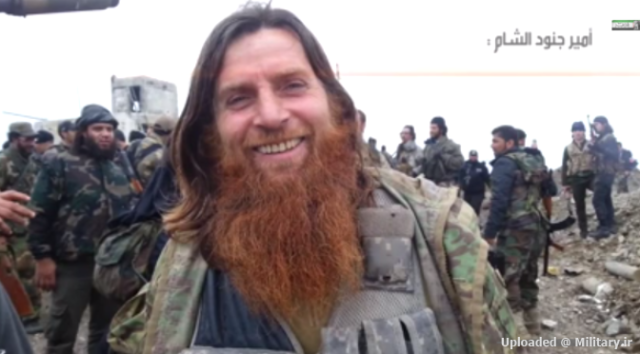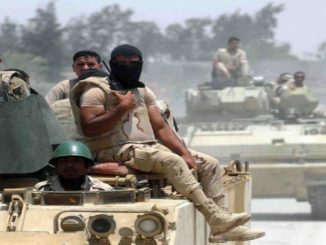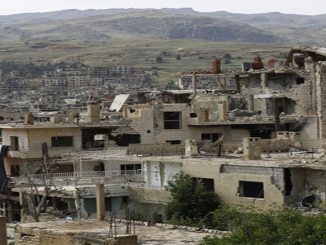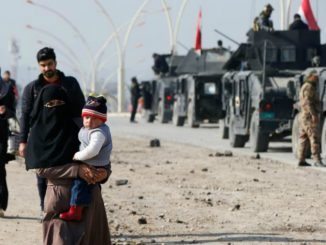
Russia and former soviet countries have contributed thousands of fighters to the terror group ISIS, who became prominent members in the group and started now widening their missions out of their territory in Syria to the neighboring countries and Europe.
originated as Jama’at al-Tawhid wal-Jihad in 1999, which pledged allegiance to al-Qaeda and participated in the Iraqi insurgency following the March 2003 invasion of Iraq by Western forces. The group first proclaimed itself a worldwide caliphate and began referring to itself as Islamic State or IS in June 2014. As a caliphate, it claims religious, political and military authority over all Muslims worldwide.
After that, vast communities of Russian-speaking Muslims started sharing viral videos from the battlefields of Syria—gruesome clips of beheadings, explosions, fighters brandishing Kalashnikovs—and encouraging others to join.
Thousands of other young men from across the former Soviet Union were flooding into Syria, mostly from the predominantly Muslim regions of southern Russia and the formerly communist states of Central Asia, such as Uzbekistan, Kyrgyzstan and Kazakhstan.
In the last few years, volunteers from this part of the world have distinguished themselves as some of the fiercest fighters—and some of the top commanders—in ISIS.
By December 2015, some 2,900 Russians had left to fight in the Middle East, Alexander Bortnikov, director of the FSB, the Russian security service, said at a sitting of the National Anti-terrorist Committee late last year.
According to official data, more than 90 percent of them left Russia after mid-2013.
The top military commander of ISIS was a Russian-speaking jihadi named Tarkhan Batirashvili, hailed from the former Soviet republic of Georgia, which borders Russia to the south and was killed by a U.S. airstrike in March of this year.
According to Turkish authorities, these Russian-speaking militants may now have started going on missions outside of their self-proclaimed caliphate in Syria and Iraq.
Turkish officials and the international media reported in June that the suicide bombers who struck Istanbul’s main airport two days earlier, killing at least 43 people and wounding more than 200 others, hailed from Russia, Uzbekistan and Kyrgyzstan.
warning of possible attacks
Russian Prime Minister Dmitry Medvedev said in an interview published on Saturday that these persons resemble a warning of possible attacks by them on their return home.
“You probably know that thousands of Russian citizens and individuals from other post-Soviet republics are fighting in Syria,” Medvedev told Channel 2 Israel ahead of a visit to Israel next week, according to the interview transcript.
“These completely brainwashed people return home as professional murderers and terrorists. And we don’t want them to stage something similar in Russia after their Syrian stints expire.”
“We have already experienced this, including in the context of the Caucasus war in the 1990s. First of all, we want them to stay there. Second, the Syrian Government asked Russian leaders to help them reinstate law and order,” Medvedev said about the wars Moscow waged in Chechnya.
Russia launched an air campaign on September 30 last year in support of Syrian government forces, in a military intervention that has been widely credited with helping turn the balance of power in favour of President Bashar al-Assad.
Russia said its intervention aims at backing the Syrian government against ISIS and the other “terrorist groups”.
“We don’t know whether this system would have any place for Bashar al-Assad or someone else, this is not our business, and it must be decided by the people of Syria. But we don’t want Syria to disintegrate into a number of enclaves and sectors (in line with a Libyan-style scenario), where each sector would be controlled by separate terrorist groups,” Medvedev said.
Islamic State suspects detained in Kosovo
As a proof of their widening targets, Kosovo’s state prosecutor has said seven Islamic State suspects detained last week were planning attacks in the Balkans and were receiving instructions from militants in Syria.
The seven men had contacts in neighboring countries such as Macedonia and Albania, and other suspects from the group still remain at large, a document from the state prosecutor seen by Reuters showed.
“They have prepared terrorist attacks on the territory of the Balkans, but first in Kosovo. They have planned to attack different buildings including security institutions,” the prosecution said.
The men wanted to create a regional offshoot of Islamic State, and one had already spent time fighting alongside the group in Syria, the document said.
Kosovo has not seen any militant attacks on its home turf, but at least 200 people have been detained or investigated for alleged Islamic State-related offences. Around 300 Kosovars have gone to fight with the group in Syria and Iraq.
Analysts fear that Kosovo might not be the target, but a starting point to plan bigger terror attacks in Russia and the EU.



